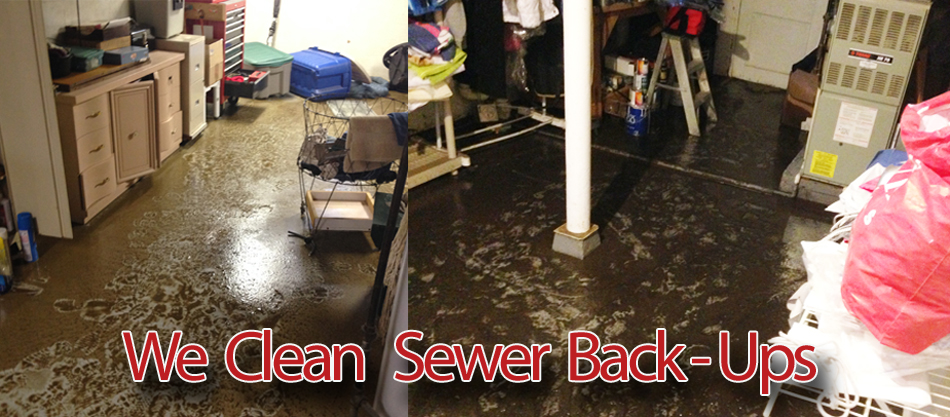
Water Damage Repair & Restoration
Water can destroy everything in its path. As an untrained professional, it is easy to assume it is just a little bit of water; but the truth behind water damage goes far beyond what you see. It’s what you don’t see that causes most secondary damage.
By not properly extracting the water and drying out the structure, you open your home up to 1,000’s of strands of bacteria and a guarantee for mold growth. Water drying is considered a science, which by definition is a state of knowing. Our BELLPRO team members have been certified by the IICRC. The IICRC is the standard setting organization for the world of water restoration and much more.
The BELLPRO team is ready for any type of water loss, whether it is a broken pipe or a flooded basement. We are equipped and ready to extract the water, pack out the contents, dry the structure, and reconstruct your home or business back to its original condition, quickly, efficiently with a job that’s done right.

Water Damage Repair & Restoration, Storm Damage, Wind Damage, BellPro serving Akron, Tallmadge, Cuyahoga Falls, Silver Lake, Stow, Kent, Hudson, Monroe Falls, Uniontown, Green, Fairlawn, Ravenna, Rootstown, Streetsboro, Ohio
We will make every effort to Help Rebuild Your Life!
Sewer Back-Ups, Storm Damage, Flooding, Appliance Overflows, Leaking Pipes and Leaking Utilities can bring a variety of uninvited living organisms and fungus into your home or business. We urge you to act quickly and with extreme caution, by calling our emergency response line immediately. Our team is prepared and ready to handle any situation.
Tips to Help Prevent Water Damage
- Look for Stains or Discoloration that may appear around windows, bottoms of exterior doors, where an exterior wall meets the ceiling, underneath water traps or other plumbing such as sinks and water supply lines
- Look for any Deposit Build - Up on pipes such as copper pipes, especially around the joints
- Look for any Mold or Mildew which could be a strong indicator that there is a moisture problem
- Look for Water Stains - Discoloration around appliance such as dishwashers, washing machines, refrigerators, sinks, tubs, toilets and around shower stalls
- Look for Water Stains - Discoloration on drywall usually near the floor or ceiling

Burst Pipes
When water freezes, it expands; If it expands enough, the pipes bursts, water escapes and can cause serious damage.
Why Pipes Burst
Surprisingly, ice forming in a pipe does not typically cause a break where the ice blockage occurs. It's not the radial expansion of ice against the wall of the pipe that causes the break. Rather, following a complete ice blockage in a pipe, continued freezing and expansion inside the pipe causes water pressure to increase downstream -- between the ice blockage and a closed faucet at the end. It's this increase in water pressure that leads to pipe failure. Usually the pipe bursts where little or no ice has formed. Upstream from the ice blockage the water can always retreat back towards its source, so there is no pressure build-up to cause a break. Water has to freeze for ice blockages to occur. Pipes that are adequately protected along their entire length by placement within the building's insulation, insulation on the pipe itself, or heating, are safe.
Regional Differences
Generally, houses in northern climates are built with the water pipes located on the inside of the building insulation, which protects the pipes from subfreezing weather. However, extremely cold weather and holes in the building that allow a flow of cold air to come into contact with pipes can lead to freezing and bursting.
Pipes in attics, crawl spaces and outside walls are all vulnerable to freezing, especially if there are cracks or openings that allow cold, outside air to flow across the pipes.
When it is Cold Enough to Freeze?
When should homeowners be alert to the danger of freezing pipes? Freezing incidents can occur when the temperature reaches 20° F or lower. Pipes exposed to cold air (especially flowing air, as on a windy day) may be prone to freezing because of cracks in an outside wall or lack of insulation.
Mitigating the Problem
Water freezes when heat in the water is transferred to subfreezing air. The best way to keep water in pipes from freezing is to slow or stop this transfer of heat. It is best not to expose water pipes to subfreezing temperatures, by placing them only in heated spaces and keeping them out of attics, crawl spaces and vulnerable outside walls. In new construction, proper placement can be designed into the building.
In existing houses, a plumber may be able to reroute at-risk pipes to protected areas. Vulnerable pipes that are accessible should be fitted with insulation sleeves or wrapping. It is important not to leave gaps that expose the pipe to cold air. Hardware and plumbing supply stores carry pipe sleeves that feature extra-thick insulation, the added protection is worth the extra cost.
Cracks and holes in outside walls and foundations near water pipes should be sealed with caulking to keep cold wind away from the pipes. Kitchen and bathroom cabinets can keep warm inside air from reaching pipes under sinks and in adjacent outside walls. It's a good idea to keep cabinet doors open during cold spells to let the warm air circulate around the pipes. Electric heating tapes and cables are available to run along pipes to keep the water from freezing. These must be used with extreme caution; follow the manufacturer's instructions carefully to avoid the risk of fire. Tapes and cables with a built-in thermostat will turn heat on when needed. Tapes without a thermostat have to be plugged in each time heat is needed.
Letting the Water Run
Letting a faucet drip during extreme cold weather can prevent a pipe from bursting. It's not that a small flow of water prevents freezing; but this helps.
Rather, opening a faucet will provide relief from the excessive pressure that builds between the faucet and the ice blockage when freezing occurs. If there is no excessive water pressure, there is no burst pipe, even if the water inside the pipe freezes.
A dripping faucet wastes some water, so only pipes vulnerable to freezing (ones that run through an unheated or unprotected space) should be left with the water flowing. The drip can be very slight. Even the slowest drip at normal pressure will provide pressure relief when needed. Where both hot and cold lines serve a spigot, make sure each one contributes to the drip, since both are subjected to freezing. If the dripping stops, leave the faucet(s) open, since a pipe may have frozen and will still need pressure relief.
If You Suspect a Frozen Pipe
If you open a faucet and no water comes out, don't take any chances. Call a plumber. If a water pipe bursts, turn off the water at the main shut-off valve (usually at the water meter or where the main line enters the house); leave the faucet(s) open until repairs are completed. Don't try to thaw a frozen pipe with an open flame; as this will damage the pipe and may even start a building fire. You might be able to thaw a pipe with a hand-held hair dryer. Slowly apply heat, starting close to the faucet end of the pipe, with the faucet open. Work toward the coldest section. Don't use electrical appliances while standing in water; you could get electrocuted.
Going on a Trip
When away from the house for an extended period during the winter, be mindful of how low you set the furnace, a lower temperature may save on the heating bill, but there could be a disaster if a cold spell strikes and pipes that normally would be safe, freeze and burst.
A solution is to drain the water system. This is the best safeguard. With no water in the pipes, there is no freezing. This remedy should be considered even when the homeowner is not leaving but is concerned about a serious overnight freeze.
To drain the system, shut off the main valve and turn on all of your water fixture (both hot and cold lines) until water stops running. When returning to the house, turn on the main valve and let each fixture run until the pipes are full again.
We hope the above information helps you better understand and possibly prevent future water damage due to burst water pipes. If you need more help in preventing future water pipe problems or even a water damage clean up, please call us at ( 330.634.9281 ) today...
BELLPRO... Specializes in Water Floods, Sewer Backup, Wind Damage, Hail Damage, Board-Ups, House Fires, and much more!




















